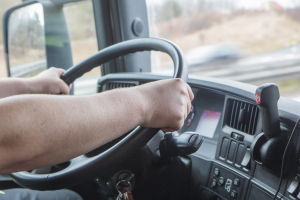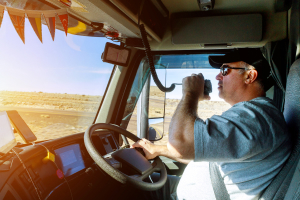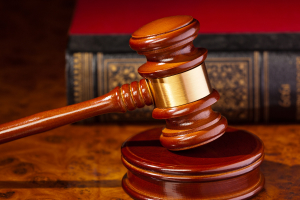
Truck accident cases differ from other motor vehicle accidents because of their size and weight. Aside from this, truck drivers have difficulty seeing the vehicles close to them, making it harder to stop when the need arises. Fatigue, poor loading practices, and overload trucks are the most common causes of truck accidents.
Dealing with the aftermath of a catastrophic truck accident entails difficulty. Often, victims are severely wounded, preventing them from living their everyday lives. Moreover, recovering from a debilitating injury demands a hefty sum of money.
The challenges and roadblocks you'd face after a truck accident would emerge, one after another, until getting back on your feet becomes a heavy toll. Luckily, suffering from these repercussions is not your only option.
Ohio's personal injury law holds the negligent party accountable for any damages and injuries a victim suffers, allowing the victim to acquire financial support from the responsible party. Knowing what you can sue for in a truck accident would help you understand what it takes to build a substantial truck accident claim.

Being in a truck accident is tragic, and you might suffer from severe and incapacitating injuries. Furthermore, investigating and building truck accident claims involve an intricate process.
Knowing the different types of compensation you are entitled to recover post-accident is crucial.
Economic damages refer to objectifiable variables such as lost wages, medical expenses, future medical bills, loss of employment and business opportunities, rehabilitation services, property damage, and even funeral and burial expenses.
Economic damages are generally available to almost all truck accident victims. Furthermore, proving economic damages is straightforward, unlike non-economic damages. Often, the court may only require the victim's party to provide medical documentation, receipts, bills, and other financial documentation to support your claims.
Non-economic damages are described as impalpable losses that are more difficult to estimate. An experienced truck accident lawyer can help assess these damages, such as:
Unlike economic damage, proving the existence of this damage would require intensive investigation and evidence retrieval. The court would have to consider different factors, such as the nature of your injuries, the effects of your injuries on your life, and even how long you would suffer from these injuries.
Furthermore, some state laws limit the value of general damages an accident victim can recover. Because of this, it is best to seek the help of a truck accident lawyer to understand the state's law and how it would affect your case.
Punitive damages are available in cases where the defendant's actions are grievous and outrageous. These damages are unique because they are unavailable in all truck accident cases.
To successfully recover punitive damages, your party must prove that the at-fault driver acted with malice or gross negligence. Additionally, your attorney must provide evidence of the at-fault party's capacity to support the punitive damages you claim.
Comparative negligence refers to the shared liability between the defendant and the plaintiff. Different states may apply different modifications of the comparative negligence law.
The law of comparative negligence states that the compensation a victim recovers will be reduced according to his shared fault.
For example, a construction worker was hit by a truck and had to undergo bilateral leg amputation. The court oversees the case and determines $100,000 as fair compensation to cover the victim's damages. However, evidence emerges that the construction worker mindlessly crossed an unmarked road. This makes the defendant 50% liable for the accident, meaning the court will reduce their compensation by 50%.

The degree of responsibility and awareness of a truck driver, owner, and the manufacturer is significant since the safety of motorists is at stake. Without this level of care, these parties may be held responsible for injuries sustained in a truck accident.
The general public is also advised to exercise extra caution when driving near trucks to avert dire consequences. The determination of liability is obscure and requires the examination of several factors.
When a truck accident happens, the truck driver is the first thing many would point their fingers at. A truck driver may cause an accident for many reasons, such as:
However, a truck driver is not always the only liable party in an accident. The truck owner or lessor may also be held partially or wholly responsible for the accident. A few examples of how the truck owner or lessor could be held liable are as follows:
Although many fingers would point toward the truck driver, it's only fair to investigate all possible liable parties to ensure the appropriate delegation of responsibility.

The trucking business operator can also be held liable for an accident caused by one of its drivers. A truck operating company is generally liable for the negligent actions of its employees while in transit. This principle is known as respondeat superior, and it applies to many businesses, including the trucking industry.
Respondeat superior aims to hold an employer liable for its employee's negligent or wrongful actions while on the job. The rationale behind this doctrine is that employers have an inherent duty to ensure their employees are fit to do their jobs.
A trucking business operator can be held liable for an accident in the following ways:
When the cause of the accident is a defective part of the vehicle, the truck driver can file a claim seeking damages against the truck manufacturer. Unfortunately, proving the manufacturer's fault may pose a significant challenge.
To succeed in this type of claim, the plaintiff must show that the truck had a defective part and that it was the cause of the accident. Additionally, the plaintiff must demonstrate that the manufacturer knew or should have known about the defect.
Unfortunately, many manufacturing companies publish legally binding documents releasing them from any liabilities their product causes. Furthermore, they often possess feasible documentation to prove the safety of their manufactured parts.

Cases of passenger vehicles or other automobiles colliding with trucks exist. In this case, the accident fault can be shared by the truck driver and another third-party driver or contractor.
For instance, if the driver of a passenger vehicle cuts in front of a truck and causes an accident, both parties would be at fault. The same can be said for construction workers or landscapers who fail to properly secure their load, resulting in items flying off their trucks and hitting other vehicles.
Although a three-way crash doesn't always happen every day, such cases are complicated and would require the experienced assessment of an experienced injury lawyer.
Seeking legal assistance from an experienced truck accident attorney can help you recover evidence from uncovering the liable parties.
Sometimes, the government can also be liable for truck crashes or collisions. Several semi-trucks fall into a ditch or hit another vehicle causing more damage by avoiding the barriers on the roads due to unfinished works by the government unit.
The government can also be at fault when it fails to maintain the roads reasonably safe. Poor road conditions such as potholes, missing guardrails, and unsecured construction zones can all lead to severe accidents.
In these cases, the governmental unit will only be held liable if it knew or should have known about the dangerous condition and failed to take reasonable steps to repair it.
Additionally, in some states, when the responsible party for the accident is the government, you must file your claim in the state's Court of Claims.
Truck accident collisions can happen anytime and can happen to anybody without warning. Here are the most common injuries that you can sustain in a truck accident:

Surviving family members of the deceased victim may file a wrongful death lawsuit against the opposing party for grave negligence resulting in death. Suppose the court acknowledges the victim's party and attributes the plaintiff's death to the driver's negligence. In that cases, the at-fault driver may be awarded punitive damages for grievous negligence.
Additionally, the family members and those financially dependent on the deceased victim may initiate a wrongful death claim based on the loss of earnings, companionship, and similar damages resulting from the loved one's death.
Unfortunately, insurance companies and their lawyers know that this is not a time when the survivors want to fight about compensation. They take advantage of your emotional vulnerability, delaying and confusing the settlement process in hopes that you will take a lowball settlement.
The statute of limitation for each state varies. For example, in Ohio, the victim can file a personal injury claim up to two years from the date of the accident. This gives you and your lawyer enough time to prepare a truck accident lawsuit if the other party refuses to acknowledge the gravity of the damages you incurred.
The settlement process can last up to six months for truck accident cases. It is also important to note here the factors that might affect the period of your claim. These are the following:
With the given condition above, you must act promptly when dealing with a truck accident case. Most importantly, hire the top lawyers in your state to handle your case.

Being involved in an accident is not easy. You will be facing financial liabilities for your medical treatment, lost earnings, and even face with permanent disabilities.
Aside from these economic damages, you may have also suffered non-economic damages such as pain and suffering, loss of consortium, and loss of enjoyment. Indeed, everything can be devastating.
The other party's insurance company may also manipulate you into thinking you deserve less compensation than what you have lost. Mind games are not new to these agencies; they may use everything in their sleeves to win the case.
Having a piece of legal advice from an experienced truck accident attorney, you are given the assurance that you can seek the maximum amount of compensation for damage from the negligent parties involved.

Despite our extensive efforts to avoid accidents, we cannot tell when we'll encounter one ourselves. Equipping yourself with this knowledge about truck accident claims will help you prepare a case when you fall victim to this catastrophic accident.
Hiring a personal injury lawyer can help advocate your rights and help you achieve the best possible outcome for your case. The lawyer can help you get full and fair compensation for your injuries, losses, and suffering.
Don't wait until it's too late. If you or a loved one has been involved in a truck accident, call a truck accident attorney today for a free consultation.